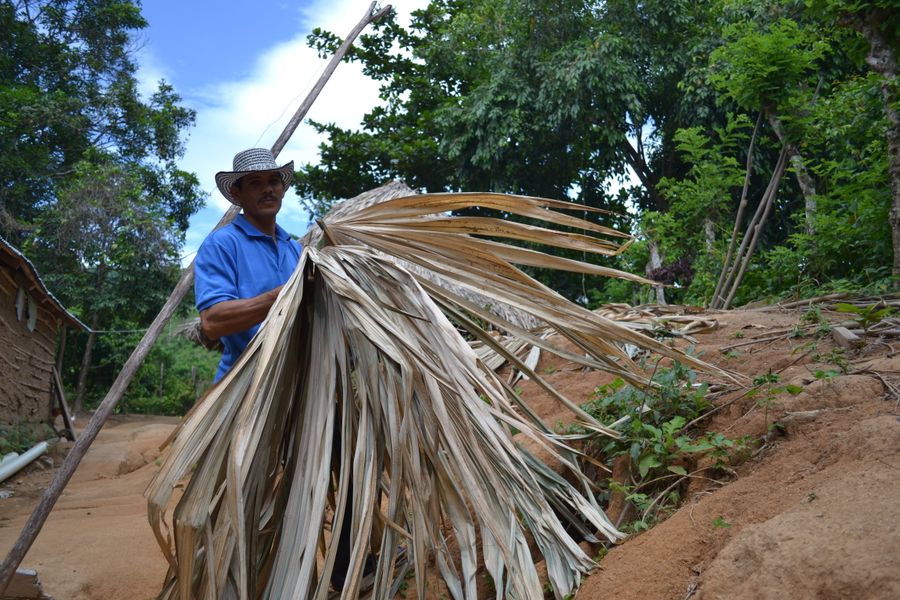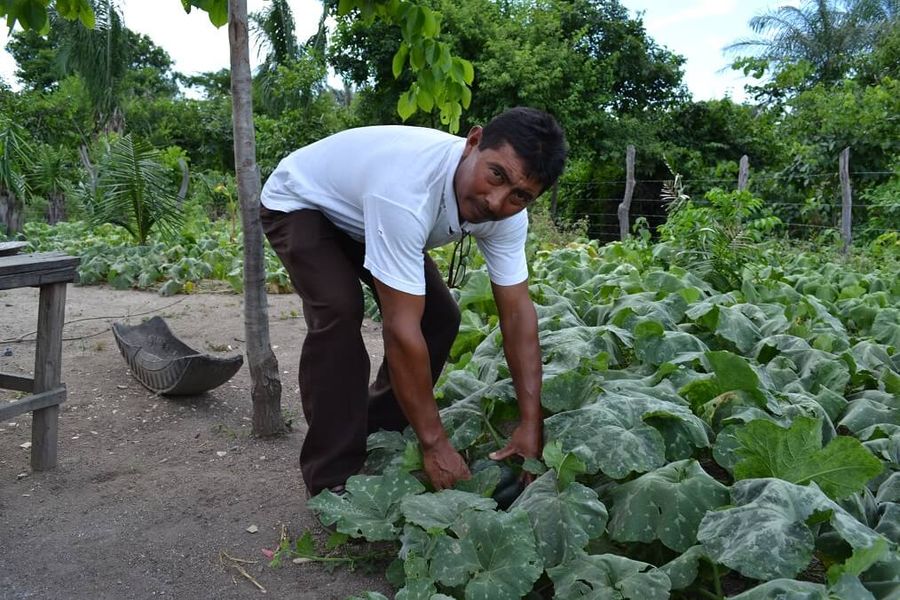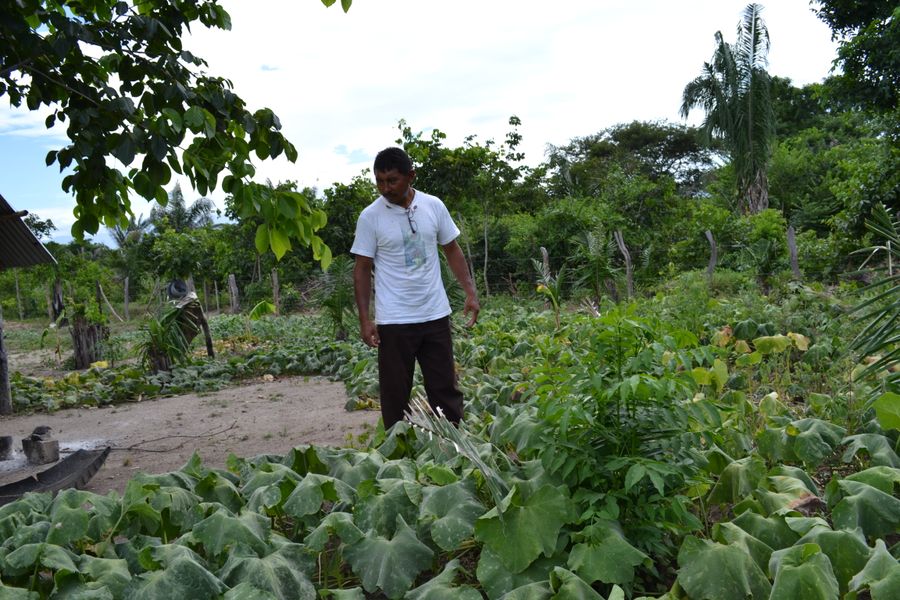Colombia: The chance of a better future

“Hopefully peace comes, hopefully. We do not want to live amidst this violence any more. Before we fled our home, we had to live with bombardments from the army as well as the guerillas,” said Jimmy Chacon, 45, who has been forced to take to the road with his family a total of four times for fear of violence – each time leaving almost everything behind. There are more internally displaced people in Colombia than in any other country in the world. Jimmy is one of over seven million who have been forced to live like refugees in their own country as a result of fifty years of bloody civil war. At the end of June 2016, the Colombian government and the leftist FARC guerilla organization, the two main parties to the conflict, agreed on a ceasefire. Only time will tell whether the peace will be a lasting one.
No place to find peace
The first time that Jimmy Chacon and his wife were forced to flee their home, their four children were very young. They have grown up knowing only life on the run. Each time violence threatened, the family fled; and Jimmy would desperately scour each new town or village for work as a day laborer to feed his wife and children. They could find peace nowhere. When the family was threatened by armed men in Higueronal, Jimmy looked for work in Barranquilla, but all he found was fighting. In 2001, the family fled to Riohacha, and built a house on land they bought with their savings. Shortly afterwards, a police unit arrived and demolished it. “I cried as I watched them destroy my house,” said Jimmy, “my daughter was just one week old."

Photo: Malteser International
Jimmy now works as a farmer, growing bananas in La Guajira. Conditions are difficult for most of the farmers in the region. Most of them are displaced people like Jimmy, and conditions there are hard and less fertile in comparison to those of their own homes. In order to help them to earn a living and feed their families, Malteser International provides the farmers with special support – giving them training to teach them how to work their land for the best result, as well as a variety of seeds to get them started. “We have a drought at the moment,” said Jimmy. “One of the things that Malteser International taught us is what to do when there is no water. This helped a lot, and means that we can take action to improve the situation ourselves. You cannot buy that kind of knowledge.
Obencio Uriana and his wife were also forced to flee their homes a total of four times by attacks and constant violence. Each time, they escaped with little more than their lives and the clothes on their backs. Obencio, 45, is a goat breeder, but most of his animals were killed at his last place of refuge because they ate his neighbors’ cassava plants. “Again and again, the only thing that we met was contempt. The worst things to have leave behind were my land and my home. Since then, our whole lives have been up in the air,” said Obencio.

Starting from scratch
Mariana and Obencio Uriana also now live in La Guajira, where Malteser International runs several projects to help internally displaced people. “I have a hectare of land that I use to grow cooking bananas with seeds that I received from Malteser International,” said Obencio. His family are in a similar situation to thousands of others in La Guajira and Magdalena. Pushed out of their homes in more fertile areas, the traditional farming methods that they have always used no longer work in the harsher conditions in the northern regions. To make matters worse, their new home is heavily affected by the El Niño phenomenon, which has reduced rainfall to a minimum during the last three years, and led to a malnutrition rate of sixty percent amongst the struggling population.
As well as showing Jimmy and Obencio how to use their land as effectively and sustainably as possible, Malteser International staff also train the farmers in how they can store their harvest, and use it prepare safe and healthy food for their families. Obencio is hoping that the harvest will be good this year, but first he will have to wait. “We will be able to sow the seeds that we got from Malteser International when the rains come, but today we already have more security and the chance of a better future,” said Obencio. “During the drought we were on the verge of being forced to pack up and move again, but now we hope that we can make it work,” added Jimmy.
Read more about our projects in Colombia
July 2016 Katharina Kiecol / Conor Heathcote








